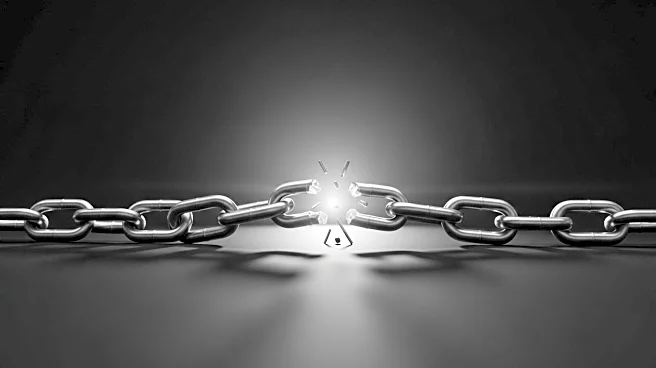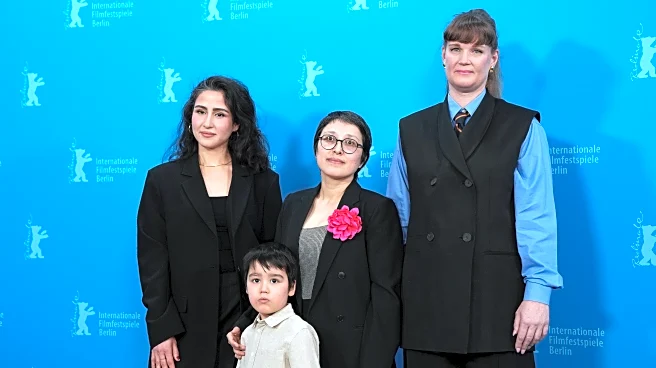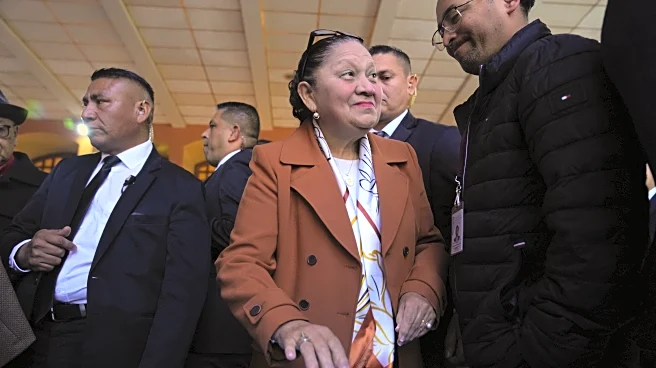What is the story about?
What's Happening?
A recent NPR/PBS News/Marist poll has revealed that nearly one-third of Americans believe political violence may be necessary to correct the country's course. The poll highlights a significant concern among the population regarding political violence, with an overwhelming majority acknowledging it as a major issue. The survey also delves into the perspectives of young voters compared to other demographics, providing insights into the broader sentiment across different age groups. The findings underscore the growing polarization and the perceived need for drastic measures to address political dissatisfaction.
Why It's Important?
The poll's findings are significant as they reflect a deepening divide in American society and the potential for increased unrest. The notion that political violence could be justified indicates a troubling shift in public opinion, which could have implications for future political stability and governance. This sentiment may influence political leaders and policymakers to address underlying issues that contribute to such beliefs, including economic disparities, social injustices, and perceived governmental failures. The results could also impact upcoming elections, as candidates may need to navigate these contentious views to garner support.
What's Next?
The poll results may prompt discussions among political leaders, civil society groups, and policymakers about addressing the root causes of political dissatisfaction. Efforts to bridge the divide and reduce the appeal of violence as a solution could become a priority. Additionally, the findings might influence campaign strategies in upcoming elections, with candidates potentially focusing on unity and addressing grievances that fuel such sentiments. Public discourse may increasingly center on finding peaceful and constructive ways to resolve political conflicts.
Beyond the Headlines
The poll raises ethical and cultural questions about the acceptance of violence in political discourse. It challenges the traditional democratic values of peaceful protest and dialogue, suggesting a shift towards more extreme measures. This development could lead to long-term changes in how political activism is perceived and conducted in the U.S., potentially affecting the country's global image as a beacon of democracy.

















